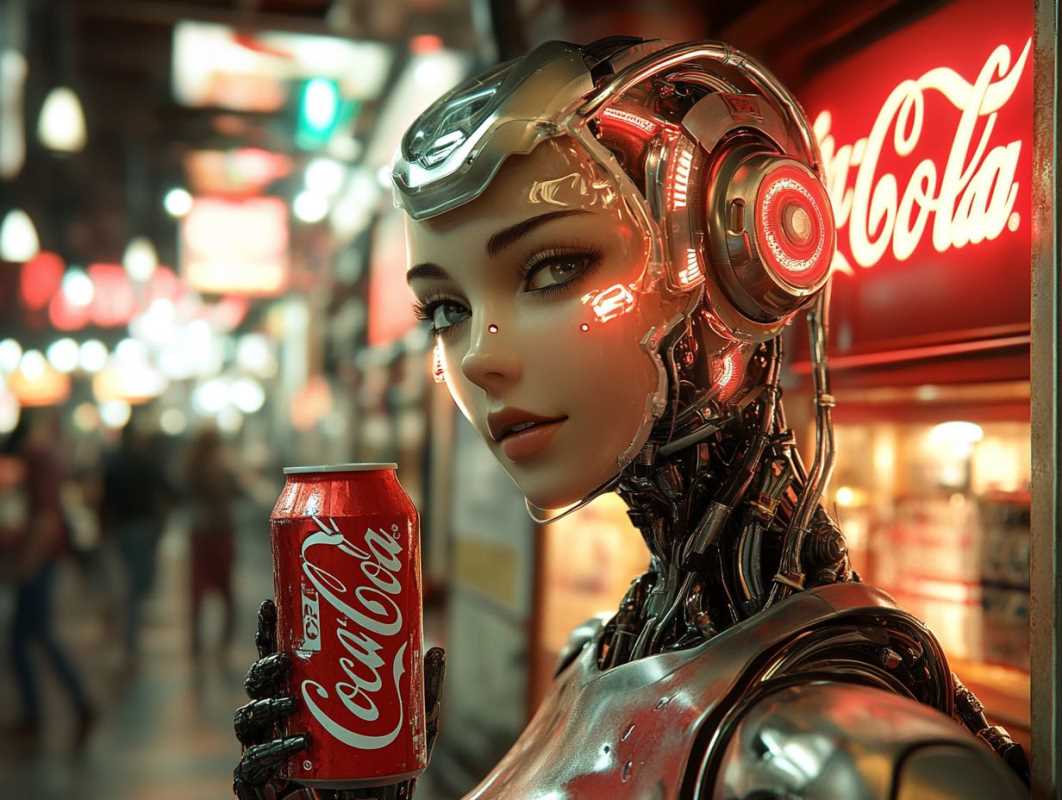Marketing is a field that thrives on transformation, adapting continually to meet the evolving needs of businesses and customers alike. Over the years, technological advancements have propelled marketing forward, but few innovations have been as disruptive as artificial intelligence (AI). AI is rapidly changing the landscape of marketing in ways that were once unimaginable. From creating hyper-personalized experiences to leveraging predictive analytics and reshaping customer engagement, AI is driving a seismic shift in strategy.
But how exactly is AI changing the game in marketing? Below, we explore the specific applications, benefits, and future implications of AI technologies within the marketing sphere to understand why businesses that adopt AI are staying ahead of the curve.
AI Applications That Are Revolutionizing Marketing
Artificial intelligence has made its mark by automating processes and deriving actionable insights from vast amounts of data. These capabilities power specific AI-driven tools and strategies that marketers are leveraging today:
1. Personalization at Scale
Personalization is no longer optional in marketing; it is an expectation. Customers demand experiences that are tailored to their unique needs and preferences. AI makes this possible by analyzing customer behaviors, purchase histories, and even browsing patterns.
For example, recommendation engines powered by AI are helping e-commerce platforms suggest products that customers are likely to buy, creating a smoother shopping experience and boosting sales. Retailers like Amazon and streaming platforms like Netflix rely on these engines to keep users engaged longer, offering personalized suggestions based on predictive algorithms.
2. Predictive Analytics
Marketing strategies often rely on guessing what customers might need or want. Predictive analytics takes the guesswork out of the equation. By analyzing historical and real-time data, AI can predict future customer behavior, such as what products they are likely to buy or which promotions are most effective.
With these insights, businesses can optimize their efforts, focusing on strategies that drive the best results. Predictive analytics has proven particularly effective in lifecycle marketing, helping to identify when customers are likely to churn and suggesting proactive measures to retain them.
3. Enhanced Customer Engagement with Chatbots
Chatbots powered by AI have become a staple for businesses looking to improve customer engagement. They provide real-time responses to common customer queries, operate 24/7, and can handle large volumes of inquiries simultaneously. This capability significantly improves the customer experience, reduces wait times, and allows human support teams to prioritize more complex issues.
AI chatbots are also advancing to provide more human-like conversations. Natural Language Processing (NLP) allows these bots to detect tone and context, delivering a personalized and empathetic interaction that mimics a human agent's capabilities.
4. Sentiment Analysis
AI is also being used to gauge customer sentiment toward brands, products, or services. By analyzing social media posts, reviews, and other publicly available content, sentiment analysis tools can measure how customers feel about a company, enabling marketers to adjust their approach in real time. For example, if sentiment analysis reveals negative feelings about a recent product launch, businesses can use this insight to modify their messaging or respond proactively to alleviate concerns.
Sentiment analysis is invaluable for managing brand reputation and ensuring marketing campaigns effectively resonate with their target audiences.
The Benefits of AI in Marketing
The rise of AI in marketing has not just introduced new tools and strategies; it has also unlocked an array of benefits that are transforming how businesses operate. Below are some of the key advantages.
Improved Efficiency
AI reduces the time and effort required to execute marketing campaigns. Many repetitive, time-consuming tasks, such as analyzing data, scheduling posts, and managing ad bidding, can now be automated with AI-driven tools. For example, AI can automatically determine the best time to deploy an email marketing campaign for maximum impact, without requiring manual trial and error.
This improved efficiency allows marketers to focus their energy on creative strategies and higher-level decision-making. It also reduces costs by cutting down on the resources needed for manual efforts.
Better Targeting
Gone are the days of broad, generic advertising. AI enables precision targeting by analyzing data to identify the most receptive audiences for a particular campaign. By studying demographics, interests, and even real-time behaviors, AI can segment audiences effectively and dictate where marketing efforts should be concentrated.
This level of targeting not only increases conversion rates but also minimizes wasted resources. Advertisers can serve ads that feel relevant to audiences, increasing engagement and reducing the likelihood of being ignored.
Enhanced Customer Experiences
AI-driven strategies are elevating the customer experience to new heights. Personalization ensures that customers only see messages tailored to their preferences and needs. Chatbots deliver responsive, round-the-clock assistance, making interactions with brands seamless and satisfying.
These improved experiences create a stronger bond between businesses and their buyers. Customers who feel valued and understood are more likely to remain loyal, which ultimately contributes to long-term profitability.
Real-Time Adaptability
AI doesn’t just deliver insights after the fact; it enables businesses to adapt in real time. For example, dynamic pricing adjusts product prices based on demand predictions or competitor pricing, while adaptive ad campaigns modify their content based on individual user responses. This agility would be impossible without the real-time analysis capabilities of AI.
Additionally, real-time insights allow marketers to act swiftly when campaigns underperform or when brand sentiment shifts, ensuring that potential fallout is mitigated before significant damage occurs.
Challenges in Implementing AI in Marketing
Despite its promise, adopting AI in marketing is not without challenges. Businesses often face hurdles such as:
- Data Dependency: AI relies heavily on data. Companies need clean, organized, and sufficient data sets to train machines effectively. Businesses with poor data management systems may struggle to realize AI's full potential.
- Cost and Resource Barriers: While AI tools are becoming more accessible, initial setup and integration costs can still be high. This can be a barrier for smaller businesses or startups.
- Privacy Concerns: Collecting and analyzing data to personalize experiences raises privacy and consent concerns. Organizations must ensure compliance with regulations like GDPR and CCPA to maintain customer trust.
Through careful planning, reliable data strategies, and choosing the right tools, however, businesses can overcome these challenges and integrate AI successfully.
What Lies Ahead for AI in Marketing?
The integration of AI into marketing is still in its early stages, and its future potential is virtually limitless. Key trends are starting to emerge that will further transform the way marketers approach their craft:
- Voice Search Optimization: AI-powered voice recognition is becoming increasingly popular, with virtual assistants shaping search patterns. Marketers will need to optimize their content for voice-search queries.
- AI-Created Content: Generative AI is already breaking ground in content creation, including writing blogs, headlines, and even ad copy tailored to specific audiences.
- Augmented Reality (AR) Integration: The combination of AR and AI will create immersive customer experiences, allowing users to interact with products virtually before purchasing.
While these trends are exciting, businesses must purposefully balance adopting new tech with maintaining authentic and meaningful connections with their customers.
The future of marketing is undeniably tied to AI. From personalization to predictive analytics, AI is reshaping strategies, empowering marketers to operate with greater precision, and ensuring customers receive the tailored experiences they crave. While challenges remain, the benefits far outweigh the obstacles, making AI an essential tool for modern marketing success.
 (Image source: Midjourney)
(Image source: Midjourney) 




.jpeg)
